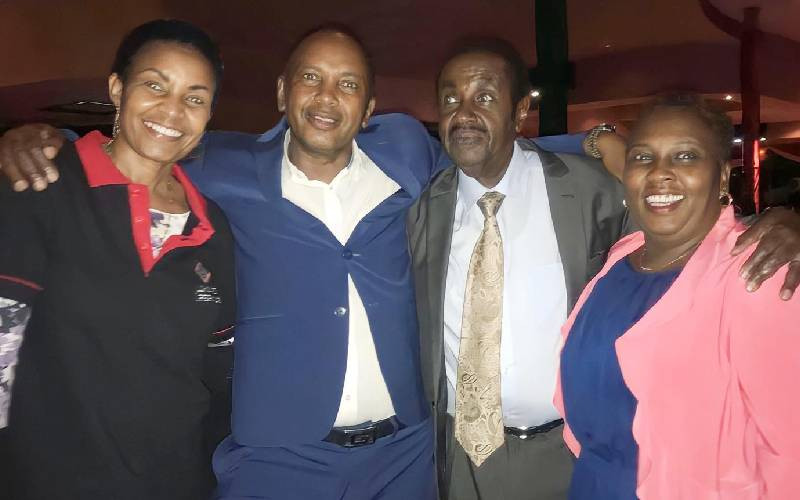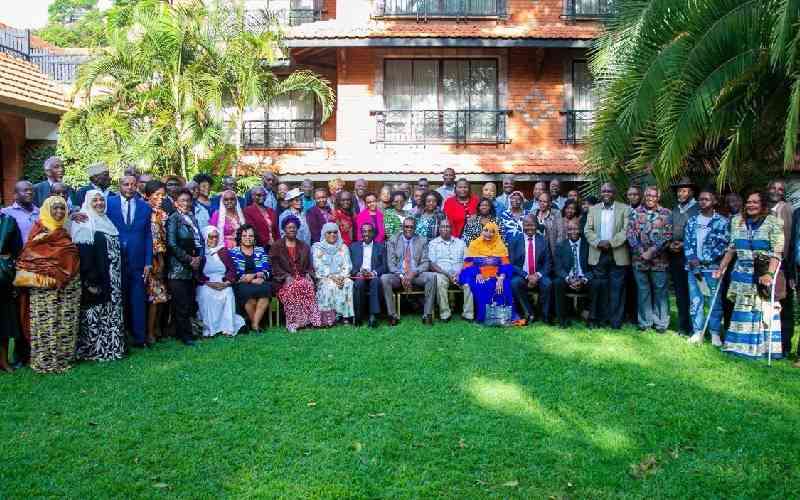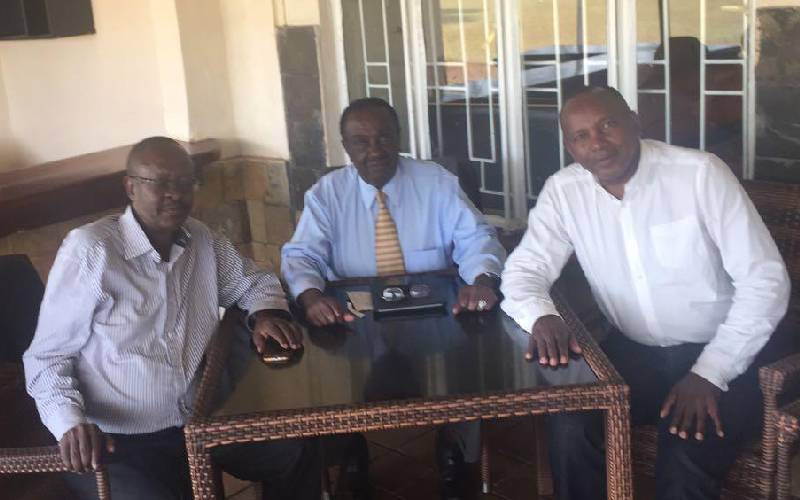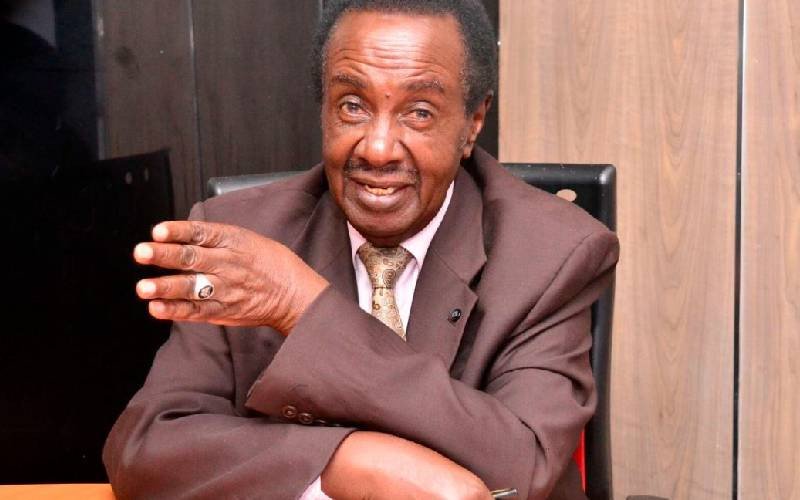The name Sami Lui shall forever be engraved in the luminous corridors of Kenya’s broadcasting history — a voice so steady, eloquent, and commanding that it became part of the nation’s heartbeat.
Before joining the Voice of Kenya (VOK) in 1964, Sami’s academic odyssey took him through the disciplined halls of Thika High School for his O-levels, and later, the prestigious Alliance High School for his A-levels, a journey that coincided with the twilight of colonial rule and the dawn of Kenya’s independence in 1963.
The story of broadcasting in Kenya stretches way back to 1927 when Radio was launched in colonial Kenya and 1953, with the birth of the African Broadcasting Service (ABS). It was an era defined by the hum of shortwave transmitters and the stern echo of colonial microphones. The pioneers , Stephen Kikumu, Daniel Katuga, Daniel Njuguna Gatei, John Gitonga, Esther John, and Ada Ibrahim, were recruited into what would be remembered as the Tier One of African broadcasters in colonial Kenya.
Follow The Standard
channel
on WhatsApp
In those days, Kiswahili broadcasters were often drawn from Africans who had served in the British Army during the Second World War. Their mission was deeply human — to inform families about their sons scattered across distant battlefields, fighting under the Union Jack. Among them were the steadfast Stephen Kikumu and Daniel Katuga, whose voices carried the weight of both discipline and destiny.
By 1959, a Third Tier of broadcasters emerged, ushering in the likes of Hassan Mazoa, John Ithau, John Mwakitawa, Inzonberi John, and Simeon Ndesanjo — heralding the evolution from the Kenya Broadcasting Service (KBS) to the Kenya Broadcasting Corporation (KBC), and ultimately, to the Voice of Kenya (VOK) in 1964 — a year that symbolized a reborn nation finding its voice.
Then came the Fourth Tier — a generation that lit up Kenyan airwaves with brilliance, charisma, and pride. Among them: Sami Lui, Huebess Abdu Kadir, Aziz Yakub, Idha Salim, June Mwenyepembe, Leonard Mambo Mbotela, Elizabeth Omolo, Amina Fakii, and Elizabeth Akinyi, soon joined by Mohamed Abdilahi, Job Isaac Mwamto, Joseph Kiema, and Alfred Mike Mureithi, among others.

It was within this constellation that Sami Lui and Hassan Mazoa rose like twin beacons in the firmament of English broadcasting. They anchored the English Service, the flagship radio station since 1927, a time when the colonial voice still lingered, guided by BBC expatriates who held sway over Kenya’s airwaves.
Hassan Mazoa, polished and articulate, would later head the English Service — his linguistic mastery honed at Rift Valley Academy in Kijabe, a school once reserved for white children of missionaries and a few handpicked Africans. His father, incidentally, had been the personal driver of Sir Philip Mitchell, the colonial Governor of Kenya.
In one of my many tête-à-têtes with the legendary Sami Lui, he leaned back, his baritone voice rolling like velvet:
“Daudi, during our time as English broadcasters, we were privileged. We dined with the white BBC expatriates, and when we requisitioned for music records from the library, it took no more than an hour. Elsewhere, such requests could languish for days… Hii ndiyo ilikuwa Kenya yetu, kwa kasumba ya ukoloni.”
His words, carried on that deep, resonant voice, were a window into a world of elegance, exclusion, and endurance — the paradox of post-colonial Kenya.
At VOK, Sami Lui would rise to Head of National Service, while simultaneously serving as a Television English News Anchor, his face and voice becoming a trusted companion in Kenyan living rooms. He honed his Broadcasting skills in both BBC and Radio Cologne.

Later, he joined East African Breweries Limited (EABL) as Public Relations Manager, eventually acting as Director of Human Resource. It was here that fate intertwined our paths — he recruited me as one of the presenters for the celebrated TV program, “KBL Festival of Darts,” which I co-hosted with David Round Turner for nearly a decade.
EABL transitioned to Kenya Breweries Limited (KBL).
Sami’s media brilliance remained undimmed. Alongside icons John Sibi-Okumu, Catherine Kasavuli, and Njoroge Mwaura, he became one of the pioneering faces of KTN Television — Kenya’s first private national broadcaster, a new era where creativity met independence.
In his later years, he freelanced with KBC Channel One as a newscaster, before receiving a prestigious appointment under President Mwai Kibaki’s government as Senior Deputy Permanent Secretary in charge of Presidential Functions, a role he carried on with equal dedication during President Uhuru Kenyatta’s tenure.

Even in retirement, Sami remained deeply connected to his broadcasting roots — an active member of the VOK/KBC Iconic Broadcasters Group, which would later crystallize into the Iconic Broadcasters Association (IBA).
On the morning of 23rd October 2025,at his serene farm in Subukia, the great voice fell silent. Peacefully, gracefully — as if signing off one final broadcast.
A legend’s mic faded to stillness. But his echo — his cadence — endures eternally.
Your voice shall forever reverberate through the airwaves of our nation’s memory.
Rest in Peace, Sami Lui
Follow The Standard
channel
on WhatsApp
By Daudi Kanja and David Turner


